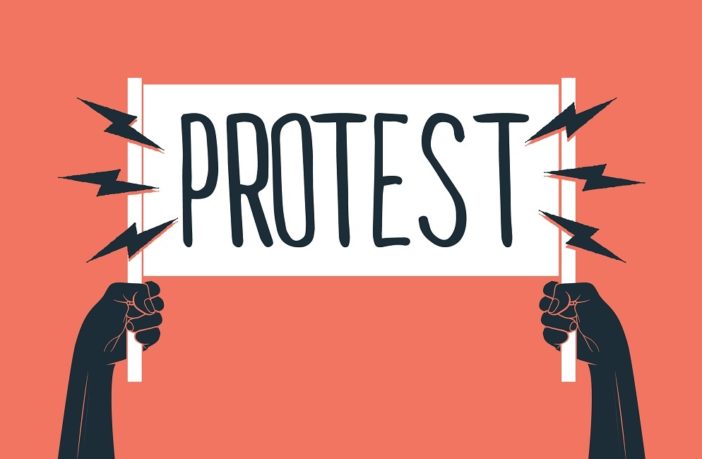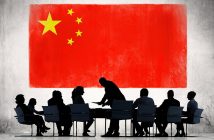Dr Philip Seargeant, Senior Lecturer in Applied Linguistics at The Open University introduces, The Language of Protests, a film made in collaboration with Hamlett Films, who previously made the award-winning Grenfell Tower and Social Murder for the OU’s Criminology programme. The study of political protests is a theme which runs throughout the OU’s English Language Studies undergraduate programme, from Foundation Level to Level Three.
*On 16 July, it was announced that The Language of Protests film had won Bronze at the EVCOM Clarion Awards.
Back in February of this year, a week before Italy became the first country in Europe to announce a total lockdown over coronavirus, we were shooting a documentary in London about political protests. The twenty-tens were a decade of almost constant, high-profile political demonstrations around the globe, and there seemed every likelihood this would continue into the twenty-twenties. Less than a month after we’d finished the shoot, the UK itself was brought to a standstill by the virus. Suddenly there was a sense, in those first few weeks of adapting to life amidst a pandemic, that the impact of the disease was so extensive it would turn most of the priorities of political life completely on their head.
Political demonstrations – which even in the era of social media rely heavily on large physical gatherings – seemed out of the question in a world in which everyone was self-isolating. The only protests that did take place in those early days were by COVID-deniers and libertarians who congregated to demonstrate against the idea they weren’t allowed to congregate. Although these made for the occasional striking photo opportunity, they attracted relatively few participants.
Over the past couple of weeks we’ve been seeing that it simply isn’t the case that COVID-19 has displaced the other major trends in world politics, however. Many of the underlying issues which have defined twenty-first century society are resurfacing with a vengeance, and some have simply been exacerbated by the impact of the virus. With the killing of George Floyd in Minneapolis on 25 May, recourse to physical, on-the-street demonstrations, and the symbolism of huge crowds occupying public space, has again become the only way that people feel they can get their voice heard and express their anger and outrage at injustices within society. What began in that case as a harrowing local incident has spread nationally and internationally, with large protests being organised in cities across the world to decry the systemic racism that blights society. Likewise in Hong Kong, where the pandemic had temporarily paused the huge pro-democracy protests that defined the recent politics of the region, the anniversary of the 1989 Tiananmen Square protests on 4 June saw thousands of demonstrators again congregating together for a public vigil, despite a police ban on such activity.
The film we made in the first quarter of the year focuses predominantly on protests around the climate crisis. Throughout 2019, Extinction Rebellion (XR) staged a number of highly-effective demonstrations, firstly in the UK and then spreading out across the globe. The film follows a group from XR as they prepare to protest against the impact that the fashion industry is having on the environment. This is discussed within the context of political protest more generally – from the Arab Spring to the Black Lives Matter and Me Too movements, and includes commentary from journalist Gary Younge and academics including Mariam Aboelezz and Feyzi Ismail.
The main question the film addresses is how people who have no access to institutional sources of power manage to get their voices heard. How do they raise awareness of the issues that affect their lives, and how do they influence public opinion and put pressure on those in power? In examining the ways groups organise and plan their communications, and how they use language, symbols and collective spectacle to capture the attention of the public, it explains the vital part that protests play in the political protest, and why they continue to be such a central feature of contemporary life.
*please be aware that some offensive language is used in this film*
Find out more
About studying English Language Studies at the OU
Read other articles by Philip on OpenLearn and The Conversation



